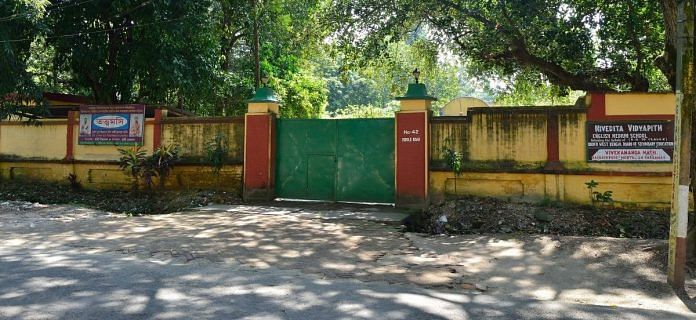It is the good work of intelligence agencies in pre-empting attacks as well as the certainty of quick reaction by troops, which have been keeping our cantonments safe.
What happened
On 20 May 2018, the defence ministry came out with a statement that all closed roads in cantonments were to be reopened to the public immediately.
This move has caused many veterans and serving soldiers to see red. On the other hand, residents of civilian colonies adjoining cantonments across the country have heaved a sigh of relief because the long detours they had to take earlier are now a thing of the past.
The positives
Undoubtedly, a large number of people will benefit from this move. It will shorten commutes, save time as well as open up wide, well-maintained cantonment roads for morning walks and recreational outings. It is also seen as a moral victory against arbitrary actions of local military authorities. It is significant that most of these positives will benefit the local public and not the military establishment.
The military’s grouse
Retired soldiers oppose the move on the ground that it threatens the security of military establishments, personnel and their families. Unrestricted access to all and sundry may also lead to scenes of unruly motorists and local vagabonds running riot in the cantonment.
A delegation of wives of serving military officers is expected to meet the defence minister soon to voice their grievances.
The security aspect
Till now, movement within cantonments was restricted due to certain roads being closed off. It was simpler to restrict and monitor non-military vehicular and pedestrian movement. Even after opening of roads, there does not appear to be anything in the rules, which forbid military personnel from verifying the identities of pedestrians and motorists seeking to enter the cantonment.
The question is, how effective can a quick visual scan of an identity card be? Identity cards can be easily forged. Military uniforms are freely available for sale in markets. A motivated group of terrorists can easily foil this type of security. It is the good work of intelligence agencies in pre-empting attacks as well as the certainty of quick reaction by troops which have been keeping our cantonments safe.
In reality, most of the regimental and battalion locations within cantonments do not have perimeter walls. Surveillance cameras and alarm systems are largely non-existent. The army continues to rely heavily on the sentry system. This is a worrying state of affairs, which has remained unaddressed for a long time. Lack of funds is often cited as the reason.
It would have been much more prudent on the part of the defence ministry to have proceeded in a phased manner. The perimeter security of the military establishments should have been ensured before a blanket order on removal of barricades was issued. In the ensuing drama, the major shortfalls in security and access control to specific military establishments are likely to remain unaddressed. The easiest but also the laziest solution would be to re-impose roadblocks while leaving the establishments unfenced and unwalled.
The underlying problems
It would be relevant here to understand the distinction between a military station and a cantonment. Cantonments are pre-Independence legacies, descended from garrison towns, and include civil areas within them. They are administered by cantonment boards, which are municipal authorities. Military stations are purely military establishments and the only civilians residing there are those employed by the military. The family members of soldiers are the other exception.
It is much easier to secure a military station than a cantonment. However, cantonments are a reality we have to live with.
To make things worse, vested interests are at play. Cantonments are among the best administered municipal areas in the country. Therefore, politicians, too, seek a piece of the pie. Several prominent politicians live inside cantonments. There is an apprehension in the military community that civilian politicians are seeking to undermine the role of the army in cantonment boards so as to profiteer from land allocation and management. However, this ignores the reality exposed by the Adarsh housing scam in Mumbai and the Sukna land scam in Siliguri, in which a top Army officer was complicit in the wrongdoing.
Sadly, cantonments have lagged behind in development. With the security issue hanging like a sword of Damocles, most cantonment boards are reluctant to sanction work such as setting up mobile phone towers. Genuine initiatives are thwarted and people tend to play safe.
Conclusions
A terror attack on any cantonment, even in the civilian area, would be a tremendous psychological victory for elements inimical to India. It would be blown out of proportion and might lead the country to the brink of war.
It is also undeniable that military personnel and families would be the preferred targets of a terror attack. Their security concerns cannot be ignored.
This would be an appropriate time to undertake a review of the Cantonments Act to bring it in tune with the times. Security of military establishments would need to be upgraded from the Mughal-era practices and protocols that currently prevail.
As far as the maximalist step of opening up all the barricaded roads is concerned, the government has not gone too far down the road. U-turns are free.
The author comes from a military family, and is a law student at the University of Delhi, and was earlier a research associate at Capital IQ.



